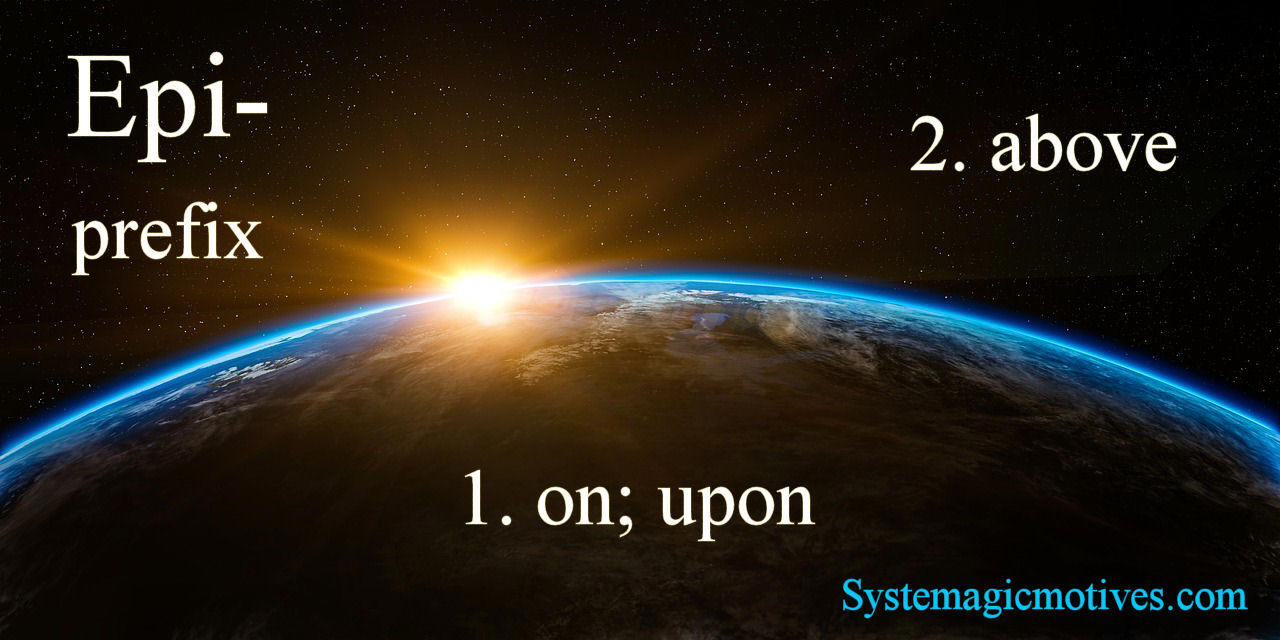The
prefix "epi-" originates from the Greek word "epi," meaning "upon" or
"over." It is a versatile linguistic tool used to signify something
that is positioned on top of, over, or in addition to another element.
In many cases, it implies a position that is directly above or a
supplementary layer that builds upon an existing foundation. For
example, in anatomical terminology, "epidermis" refers to the outermost
layer of skin that lies directly over the deeper layers, while
"epicardium" describes the layer that covers the heart. This prefix
helps to clarify the spatial or functional relationships between
different structures or concepts.
In a
broader sense, "epi-" can indicate an added or extending aspect beyond
the primary or foundational level. Words like "epilogue" and "epitome"
illustrate this application. An "epilogue" is a section added to the
end of a literary work to provide closure or additional context,
effectively building upon the narrative presented in the main text.
Similarly, "epitome" represents a perfect example or summary that
encapsulates the essence of a larger concept or category. Here, "epi-"
suggests something that goes beyond the basic or initial entity,
offering an extended perspective or a refined embodiment.
Overall,
the prefix "epi-" enriches the English language by providing a way to
describe relationships and attributes that involve positioning,
addition, or extension. It serves as a functional element in forming
words that convey nuances of location, enhancement, or summarization.
Whether describing anatomical layers, literary components, or exemplary
representations, "epi-" helps to convey a sense of being on top of, or
extending from, the fundamental element, thereby enhancing clarity and
precision in communication.

